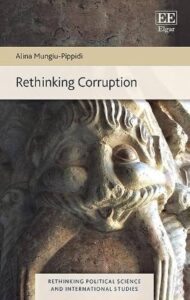 Political corruption poses a serious threat to democracy and its consolidation, according to analyst Alina Mungiu-Pippidi. Many anticorruption initiatives fail because they are nonpolitical in nature, while most of the corruption in developing and postcommunist countries is inherently political, she wrote for the Journal of Democracy:
Political corruption poses a serious threat to democracy and its consolidation, according to analyst Alina Mungiu-Pippidi. Many anticorruption initiatives fail because they are nonpolitical in nature, while most of the corruption in developing and postcommunist countries is inherently political, she wrote for the Journal of Democracy:
Successfully fighting this kind of corruption requires far more than instituting best practices from advanced democracies. Electoral revolutions can lead to consolidated democracies only if they are followed by revolutions against particularism. Nothing short of such a revolution will succeed in curbing corruption in countries where particularism prevails.
The act of ‘rethinking’ corruption has already taken place more than once in the past two decades, contributing further to a post-truth about corruption than to anything else, Mungiu-Pippidi observes in her new book, which offers a forecasting method, alongside the latest generation of analytical, fact-based tools to map, assess and predict corruption risk.







